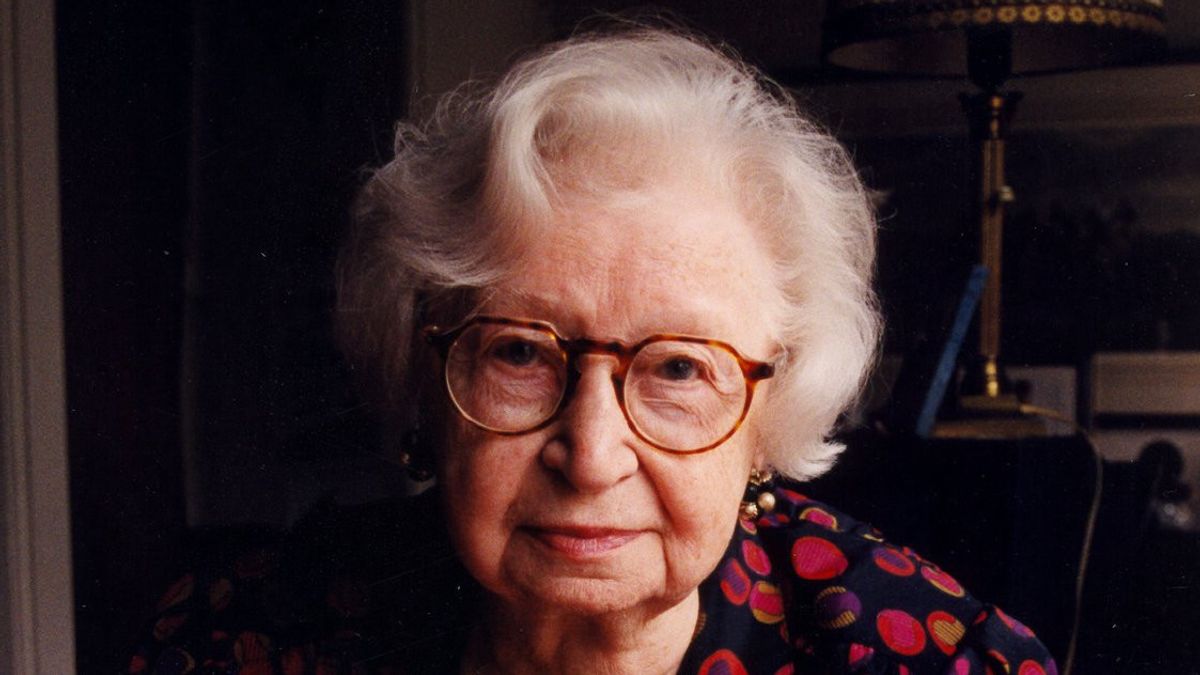
JAKARTA - January 11, 2010, the only person who witnessed the life of a Jewish woman, Anne Frank, died. The woman's name is Miep Gies. She is the one who kept Anne Frank's diary that was left behind when Anne was caught by the German Police to be escorted to a Nazi concentration camp. The diary was made into a book and published under the title 'Anne Frank: The Diary of a Young Girl'.
Born in Austria, Gies moved to the Netherlands to live with his foster family when he was only 11 years old. This had to be done by his biological parents because Austria experienced a shortage of food after World War I.
Gies is a bright student, very interested in the world of dance and exploring the city with his friends. Gies describes himself as having a rich social life and joining many clubs.
However, he began to face difficulties after refusing to join the Nazi group. The Nazi Party began to gain traction in Gaaspstraat, where Gies and his foster family live. Many of Gies' friends believed what the Nazis said. When the Nazis started approaching Gies, he refused. The choice is considered to destroy him in the future.
After his refusal, Miep Gies' German passport was canceled and he was ordered to return to his hometown of Vienna within ninety days. By that time, Germany had annexed Austria, effectively making Gies a German citizen. Miep Gies eventually married a Dutch man named Jan Gies, which made him a Dutch citizen.
Hide the Frank Family from the Nazis
In May 1940, Germany invaded the Netherlands and quickly put the Jewish population in the Netherlands under threat. In early July 1942, the Frank family contacted Gies that his family was leaving Germany to hide in Otto Frank's business, now called Secret Annax. Not only the Frank family, Otto Frank's business partners along with his wife and son also joined in. They are all Jews.
Miep Giers was not afraid of being caught protecting the Jews. Every day Miep Gies brought them food bought from illegal ration wholesalers. Miep Gies and his colleagues also keep activities in the business building looking normal and not attracting people's attention too much. Miep Gies and her husband also often spend their evenings with eight people hiding in the Secret Annex. Gies feels the fear of the Frank family that is so real that Gies is also sometimes depressed.
Gies remains silent about the Frank family he is hiding. Even Gies decided not to tell his adoptive family what he was up to. On August 4, 1944, after 25 months of hiding, eight people hiding in the Secret Annex were found by the Gestapo, the German secret state police, who got information on the Frank family's hiding place from a secret informant. Gies was working at the time of the raid and avoided arrest because one of the policemen was from Vienna, where Gies is from.
Not remaining silent, Gies went to the police headquarters and tried to save Frank's family and others, but he was unable to pay bribes to free the people he thought were brothers.
Quoted from History, Saturday, January 11, 2020, Miep Gies found Anne Frank's diary and kept it to wait for the Frank family to return. But unfortunately, only Otto Frank managed to survive the Nazi atrocities. When he learned that another family member had died in the camp, Miep Gies then gave Anne's diary to Otto Frank.
Otto Frank lived with the Gies family until 1953. Miep gave birth to a son, whom he named Paul, in 1952. Although Anne's diary had been published as a book in 1947, Miep Gies had never read it, but Otto eventually persuaded her to read it.
"Even though I cried a lot, I kept thinking: Anne, you gave me one of the best gifts I ever got"
Miep GIes
Miep Gies published a memoir entitled 'Anne Frank Remembered' in 1987. Gies toured and lectured on the Holocaust and the legacy of Anne Frank, but Miep always insisted he was no hero. He just did what many good Dutch people did.
Miep Gies also received many awards when he was old, such as the Order of Merit of the Federal Republic of Germany, the Medal of Yad Vashem, and the Wallenberg Medal. Receiving the honor for the last time, he said, "I feel very strongly that we should not wait for our political leaders to make the world a better place."
At the end of his life, Gies reflects on the time he has spent in the world and how he has influenced those around him.
“I am a hundred years old now. It's an amazing age and I'm even reaching it in pretty good health. So if it's fair to say I'm lucky and being lucky seems to be a common thread that runs through life, "said Miep Gies.
Miep Gies died from a fall, a month before his 101st birthday.
The English, Chinese, Japanese, Arabic, and French versions are automatically generated by the AI. So there may still be inaccuracies in translating, please always see Indonesian as our main language. (system supported by DigitalSiber.id)







